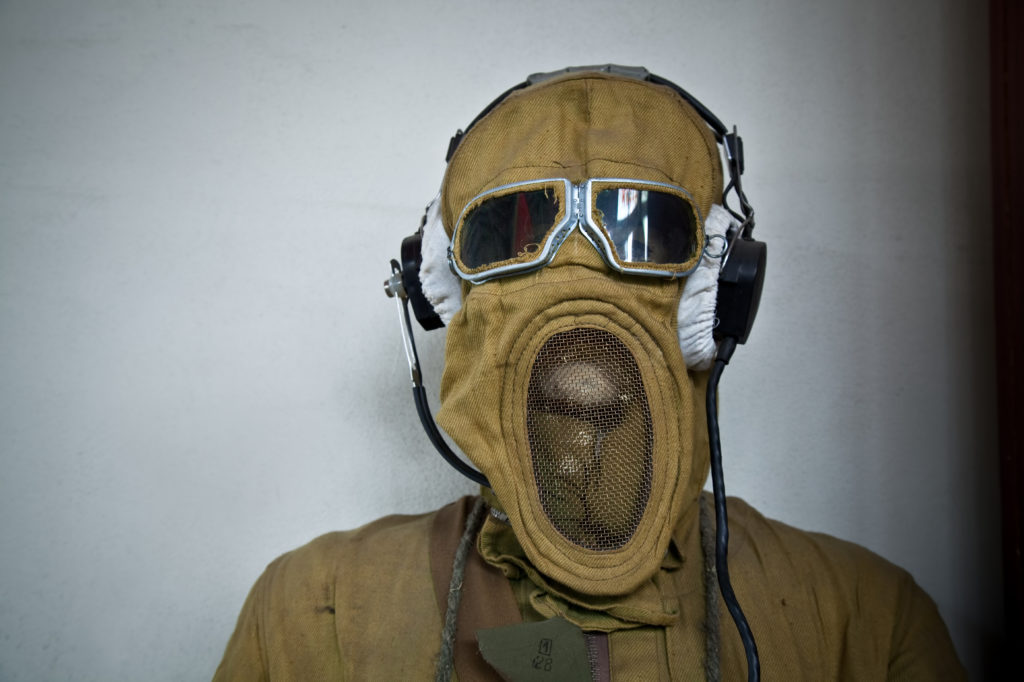
It’s been hard to get away from the ongoing story of the coronavirus (specifically, COVID-19, as this strain is being called). When I worked for the Frank Magid company decades ago, the mantra on the TV side of the company was that stories that dealt with health, heart, or pocketbook were home runs. This one has all of those – and more. And we don’t know and cannot fathom the ending.
As prime media outlets in local markets, radio will play a role in covering this story and reflecting audience emotions across the entire spectrum. Stations that specialize in news, information and talk will have an edge. But many music stations also inform, entertain, and reassure listeners in more lifestyle-oriented ways.
There are rare moments when a national (or global) event impacts everyone (9/11 comes to mind), but even that was centered at Ground Zero in New York City. As I’m writing this, if you’re in Washington, Oregon, or Northern California, this story has become even more poignant. It seems like every hour, there’s more breaking news about COVID-19 appearances in new areas. We know the virus will soon spread to other regions of our country – and the world.
Beyond that, we know very little about the scope of the spread and impact of COVID-19 on our lives, our families, and our industry. But it appears certain this story has the potential to change things, whether it’s the way citizens spend their time and money – or live their lives.
Enter radio, stage right. Yes, most stations are very much laser-focused on their Nielsen ratings, their Miller Kaplan rankings, concerts coming to town, their sports teams, and other routine events we’re all accustomed to as the new year accelerates.
The spread of this strain of the coronavirus, and the attendant emotional and health effects it has had – and may have – should be something that everyone in radio should be turning their attention to. While the federal government, the CDC, and other agencies have now sprung into action, much of the real activity promises to be on the local market level – municipalities, hospitals, health care organization, and civic groups.
And that’s where local radio comes into play. Every market, region, and state’s situations may be different for obvious reasons, but facing this challenge is something looming on the horizon for all of us – and in some communities, right outside the windshield, right now today.
Our company is engaged in conversations about our role in this situation. Clients from nearly two decades ago may recall we were intrinsically involved in disseminating information (and advice) during 9/11, which many forget ironically happened at the start of the Fall Book that year. Yes, it was a tragedy of unimaginable proportions, but as we learned, the radio business – and life itself – went on in the days and weeks following the tragedy. And it was essential that stations had an operating strategy for how to behave as things settled back into place.
Those thoughts cascaded in my mind when promotion and marketing guru, Paige Nienaber, reached out to me this past weekend. Paige is a “seize the moment” genius – a combination of mad scientist and promotional gamesman – always having an attention-getting, topical tactic to suit virtually any situation.
Paige’s company – C.P.R. – specializes in attention-getting promotions. And his title is VP/Fun N’ Games. While there’s usually a zany quality to Paige’s approach to making noise and getting noticed, his impressions and tone about COVID-19 and its effects on radio reflect a different perspective. Smart observer of the human condition that he is, Paige knows this is a very different moment in which many radio operators will need to make a response – perhaps outside their comfort zones.
I’m hoping this piece can be the start of an industry conversation about this unique emergency. Like a conversation with Paige, it’s a stream of consciousness – just the stimulus we all need to consider and “ideate” on our own.
Please dialogue with Paige and us on this topic, in our “comments” section and on social media as we tackle this unique challenge together, hopefully proving local radio’s mettle and rasion d’être in a world of algorithmic playlists, jockless streaming channels, and on-demand prerecorded content. This may be one of the best times to be a live, in-the-moment medium. The radio stations – and the companies that own them – that are prepared will help their communities, and by extension, themselves the most.
At some point soon – every radio company, big and small, public and private – will need to have this conversation.
We will get through this one, of course, and hopefully broadcast radio can and will prove its efficacy and relevance in a rapidly changing, sometimes scary world. The radio industry likes to say, “We need to do a better job telling our story.” This could be one of those moments when radio has the ability to write its own story. Let’s hope broadcasters are up to the task. – FJ
It’s been 14 years since Hurricane Katrina slammed into the Gulf Coast and my memory of the days and weeks that followed was a certain awakening among “Radio People.”
I’d grown up in the industry knowing that what we’re in is a continual, never-ending football game. Occasionally we get an update on the score but then it’s back onto the field. And if you’re the QB and you return from the bench to find that the defensive line have been replaced with 800 pound ‘roid raging dropouts from Anger Management class, then….you’re probably not going to sit in the pocket. You’re going to hand it off and get out of the way. You’d call an audible.
And great stations know when to call an audible. So, on a Monday in August 2005, people went to their stations, surveyed the playing field and  decided, “This thing in Louisiana is bigger than our Family Four-Pack contest” and changed the game plan.
decided, “This thing in Louisiana is bigger than our Family Four-Pack contest” and changed the game plan.
For a lot of programmers and talent, it was a defining moment. They learned that, yes, we can occasionally be relevant and do something tangible. And that broadcast radio can be more than continuous sweeps of your favorite songs from the 70’s, 80’s and 90’s (“Without the rap” is assumed). And they stepped up, and speaking just for my clients, delivered 118 semi-truck loads of supplies from places as far away as Seattle and Edmonton.
And then we fell back into our old habits. It’s a game plan, it’s written in stone and dadgum it, this is the way we’re running our plays this week.
A few years ago, there was teacher strike in a major metro area, 600,000 families were suddenly dealing with their kids being stuck at home, and us having to figure out how to deal with it. A station I worked with was doing a “same old” $500 contest that was so convoluted that I sent the link to the VP and asked, “Can you tell me how this works?” His reply was not something that Fred Jacobs would ever include in something he released.
I reached out and suggested they suspend the promotion, take the $500 cash budget, and break it up into five $100 prizes – and pay for people’s child care. When the strike ended, resume the contest. You would have thought I’d suggested putting kittens in a blender. They did their contest, no one noticed or cared, and they continued their journey through The Fields Of Irrelevance.
The COVID-19 story is changing so quickly it will have gone in 20 different directions between the time I hit “send” and you read this.
First, if this doesn’t drop off the radar by mid-week, you can’t ignore it. “But, we’re people’s escape from bad news” many music radio programmers will say. True, but to blithely plow forward with no acknowledgement of the story would, some would argue, qualify you for a career in fast food management.
I’m big on “acknowledge.” In 2020, there are a lot of ways to acknowledge something:
- Imaging
- Web graphics
- Email club
- Text
- A social media topic
- A contest…but PROBABLY not in this case unless you play it deftly and with your tongue planted firmly in your cheek. Even then…
- A video
- An interview
With SARS, one of the Country stations stuck surgical masks on the artists on their website’s masthead.
With a flu outbreak in Houston, Hot 95.7 changed up their “Pay Your Bills” imaging, and it was done by a pharmacist dealing with a long line of hacking customers with expensive prescriptions to pick up.
In terms of social media…yeah…that’s a minefield. Maybe you do something like a Facebook Live from a physician’s office as he/she demonstrates hygiene, discusses diet and discounts inaccurate info that is floating around.
Know your market. One of my clients thought that doing face masks would be way way way too touchy for where they are and what’s going on. Good. They’re there and they know their market far better than me. Sixty miles away, another station has looked at their landscape and decided face-masks would resonate with their audience, so they have thousands on the way.
And also know The Line. It’s inevitable that some guy (and it’s always a guy) is going to do something like a parody song that just is so over the top and stupid that it becomes something like Inetta The Moodsetta: people will be talking about it 20 years later. Like the guy who imploded his career with “The Tsunami Song.” No, death in fact, is not funny.
When I worked in the Bay Area we had an earthquake plan and everyone had a little laminated card with what their duties would be. Where they would go and what they would do. Having a plan for your cluster should there be disruptions is wise. Do it.
And look over the music. Is there something in there that people would hear and think “Wow, how tasteless” in the current moment and context? I offer up a station in Minneapolis that played “Under The Bridge” by RHCP while a memorial service at the 35W collapse site was happening. Thank goodness no one plays “Boogie Fever” any more.
 Of course, if this virus hits home in your market, then, all bets are off. That’s when you reconvene, and start planning new strategies.
Of course, if this virus hits home in your market, then, all bets are off. That’s when you reconvene, and start planning new strategies.
Sometimes in life, you need know when to call the biggest audible of all. Sometimes in life, it’s better to not do something than to do it. Like running your ratings contest.
I always refer to Newcap in Edmonton when they were doing their big contest, “The Fugitive.” A few days before the planned capture there was just a horrific multiple cop killing. I was getting off a plane in Toronto, 1,800 miles away, and all TV programming stopped to cover it.
So, the station got on the air and basically said, “There are times for radio silliness and there are times when you need to stop and focus on the listeners and the community and what they’re experiencing. Now is one of those times.” My memory is they received 8,000 “positive” emails or messages and three really pissed off contest players. It might have been one of the biggest things the station ever did. Or didn’t do.
Not that we do stuff for positive feedback from the audience but it demonstrated what they did had struck a chord.
COVID-19 is a chance for aware programmers and managers to once again be reminded radio is, in fact, licensed to serve our communities. When there is a perceived threat to our audience members, then we have a duty to address it – in one way, shape, or form.
How you react or respond will show how well you know your audience and your city of license.
A post-script: As Paige wisely points out, market situations and your brand’s position may dictate what, if anything, you do this week, next week, next month – if at all.
It didn’t escape me to see NPR very much congruent with their audience in their tone, approach, and service over the weekend in a story about the coronavirus. Their well-defined values incorporate credibility, awareness, responsibility and objectivity.
For your brand, its purpose and role, your audience expectations, and your role in your community may very well be tested here. Let us know how we can help.
You can read NPR’s approach here. – FJ
- In Radio, You Just Never Know - April 17, 2025
- The Secret To Making A Great Podcast (And Great Radio) - April 16, 2025
- I Read The (Local) News Today, Oh Boy! - April 15, 2025




Enjoyed working with Paige for many years in my previous life. 🙂 Hes a freak show…but in a good way! Awesome read.
Thanks for this, Dave. When Paige reached out to share his impressions, I wasn’t sure whether we were talking about printing your logo on face masks. He’s smarter than that.
That’s literally the nicest thing anyone has ever said about me.
Here’s an old example. Hurricane Alicia, 1984. We’re the 50K watter right in the path.
We of course went wall to wall coverage and pulled all the spots, announcing on the air to clients that we were sure they’d understand.
The listeners responded very, very positively to both us and the sponsors.
Win/win/win
And in cases like natural disasters, shootings, etc., there is little-to-no warning it’s coming. OK, hurricanes a few days in some cases. With COVID-19, it’s a tidal wave we can see, but for most American markets, still a ways away from hitting shore. There’s time to plan. Thanks for the comment.
No surprise- Paige (and Fred). Thanks. Excellent !!!
What a team, eh? 🙂
Like Krok & The Grimace
If I were still programming ( instead of doing TV) I’d start right fucking now taking to local promoters about airing concerts and shows on my air and web. If people can’t congregate in public, they could at least watch some live music. Public events will be disrupted count on it.
Holy muther of blurg. That’s brilliant.
I am the Afternoon Drive Host at Hunter’s Bay Radio in Huntsville, Ontario and this is exactly what we’re doing. We’ve teamed up with a local brewery to pay the musicians and broadcast their performance through our Facebook page. Viewers also have the option of tipping the artist through a virtual tip jar. 🤗
Smart, Sarah. Thanks for sharing, and be safe.
I wanted to point out that the graphic that comes with my comments is an image that goes with “Flight Attendant X”. She’s a former morning show host who went out to LA to become an actress…which NO ONE has ever done before. Since 2007 she’s be working for Delta and posts anonymously on hotelnightmares.com, which is my boutique project. Not sure why it pops up when I comment.
I was going to ask about it, but then thought better of it. Thanks for explaining its origin.
But if you work for a news-talk station where most of the syndicated hosts (and the local hosts who want to be syndicated) are saying on the air that COVID-19 is a hoax perpetrated by the Democrats and the media, what can you do to combat that?
Change stations. 🙂
Suggest that they go to Seattle and lick the door handle at a public restroom
I’ve been brainstorming some “social distancing” bit ideas today. Figured I’d share them here …
* Watch Parties. Since nobody can gather in big groups and people are gonna be sitting around looking for stuff to do, it’s time to take advantage of technology and have some watch parties with some listeners. And while there aren’t really any sports to do it with, you can totally do a watch party with any show out there and interested people will join. Or go fun and retro with it and watch dumb fun stuff from the past like “Flavor of Love.”
* Online Game Shows. I’m not sure exactly how to execute this (and would love suggestions), but I think it would be awesome to do some Facebook/YouTube/IG live game shows with your audience for prizes. A great way to engage and again give them something to do.
* Help entertain children. If schools get cancelled in your area … maybe rattle off a handful of videos of you reading kids’ books or telling stories or dressing like a pirate or whatever. These can easily be done live as well
Good stuff here, Zack. It’s going to take out of the box thinking to serve an audience that’s cooped up at home. Thanks for sharing it here.